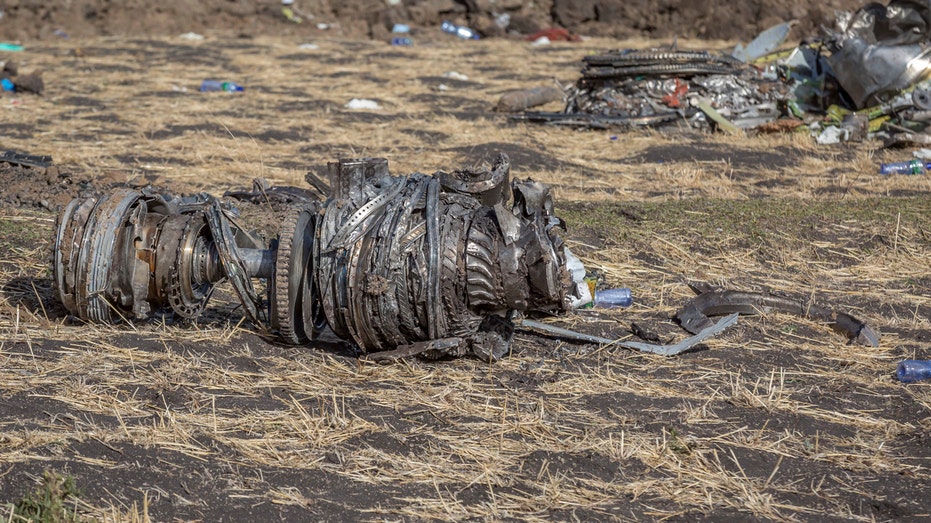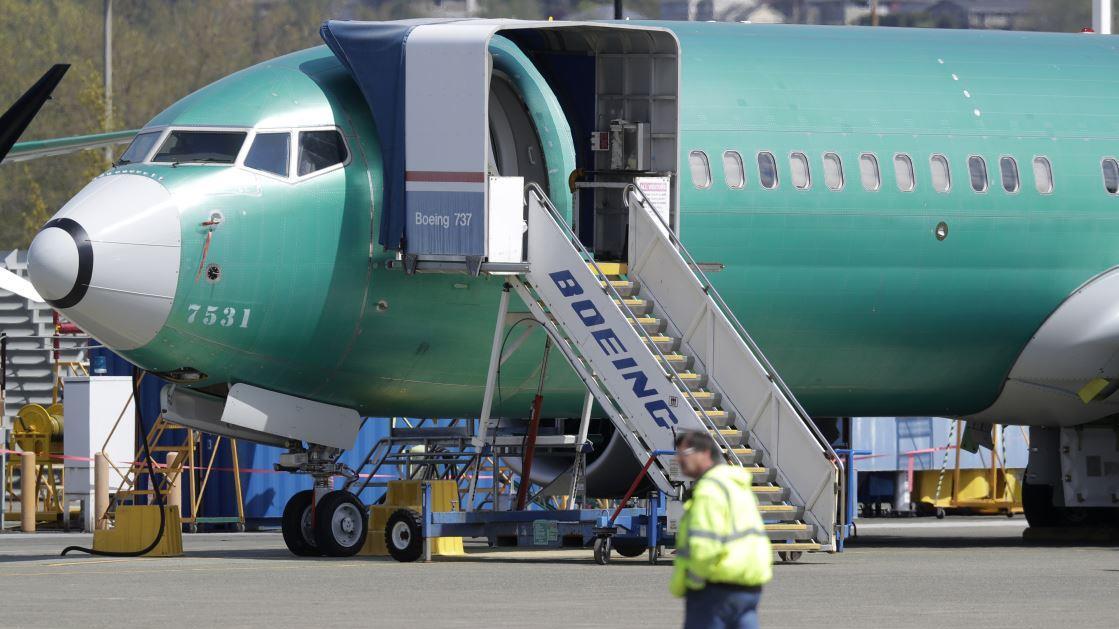Faulty Boeing sensor reading preceded 2019 737 Max crash: Ethiopia
Government put out an interim report Monday
ADDIS ABABA (Reuters) - A faulty sensor reading and the activation of an anti-stall system on a Boeing 737 MAX preceded the crash of an Ethiopian Airlines flight in 2019 that killed 157 people, an interim report by the government in Addis Ababa found.
The accident, following the 2018 crash of the same model plane in Indonesia killing 189 people, led to the grounding of Boeing's 737 MAX worldwide, wiped billions off the company's value and sparked hundreds of lawsuits from bereaved families.
The interim report bolstered the findings of Ethiopia's initial assessment, which linked the crash to a Boeing automated system. The interim report's recommendations did not include any proposed measures for Ethiopian authorities or the airline.
| Ticker | Security | Last | Change | Change % |
|---|---|---|---|---|
| BA | THE BOEING CO. | 243.03 | +6.08 | +2.57% |
It said two sensors recording the plane's angle - known as the ``angle of attack'' or AOA - differed in readings by 59 degrees. ``Shortly after lift-off, the left and right recorded AOA values deviated. The left AOA values were erroneous and reached 74.5o,'' the report said.
BOEING CEO CALHOUN EXPRESSES REGRET OVER CRITICISM OF LEADERSHIP, PREDECESSOR
That was followed by the activation of an anti-stall system known as MCAS which repeatedly forced the plane's nose downward because the sensor was saying it was climbing too steeply, it said.

The CEO of Ethiopian Airlines, Tewolde Gebremariam, looks at the wreckage of the plane that crashed shortly after takeoff from Addis Ababa, Ethiopia, March 10, 2019. (Facebook via AP)
The Ethiopian interim report contrasts with a final report into the Lion Air crash released last October by Indonesia which faulted Boeing's design of cockpit software on the 737 MAX but also cited errors by airline workers and crew.
"INADEQUATE" TRAINING
The Ethiopian report did not mention any errors by the pilots, merely noting they were trained, fully certified and medically cleared to fly. It criticised Boeing for "inadequate" training for pilots flying the new model because simulations did not include scenarios where MCAS was erroneously activated.
BOEING 737 MAX JETS REQUIRED BY FAA TO HAVE ELECTRICAL WIRING FIXED BEFORE FLYING AGAIN
"Training should also include simulator sessions to familiarize with normal and non-normal MCAS operation. The training simulators need to be capable of simulating AOA failure scenarios," it recommended.

Airplane parts lie on the ground at the scene of an Ethiopian Airlines flight crash near Bishoftu, or Debre Zeit, south of Addis Ababa, Ethiopia, March 11, 2019. (AP Photo/Mulugeta Ayene) (AP)
The report ratifies safety recommendations that are already underway, including modifications to the sensor architecture and anti-stall MCAS software. Boeing only recently endorsed the call for more costly simulator training after holding out for months in favour of computer-based training.
The U.S. House Transportation Committee on Friday faulted the country's Federal Aviation Administration's (FAA) approval of the plane and Boeing's design failures, saying the 737 MAX flights were "doomed."
Boeing was not aware that the report was out, said a spokeswoman for the company, adding she would comment once she had read the report.
GET FOX BUSINESS ON THE GO BY CLICKING HERE
There was no immediate comment from U.S. aviation authorities and no clear indication from Ethiopia when the final report might be released.
CLICK HERE TO READ MORE ON FOX BUSINESS
(Writing by Katharine Houreld; Additional reporting by Katharine Houreld in Nairobi, David Shepardson in Washington and Tim Hepher in Paris; Editing by Andrew Cawthorne)




















